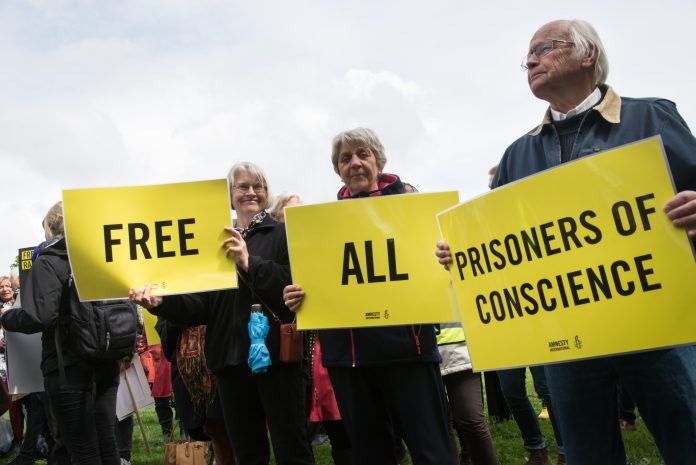
The current technological movement gives the impression that the internet is unrestrained: read on to find out about seven countries enforcing censorship of the internet
In today’s technological age, you won’t be hard pressed to find someone nearby using the internet. After all, it is now used for everything from reading the news to getting work done and, thanks to social media and video calls, is one of the most popular channels of communication. For this reason, you might be forgiven for thinking that internet access is unrestricted the world over.
In reality, there are a lot of governments that seek to control it.
The common motive behind censoring the internet is often political; whether under the guise of ‘preventing election day chaos’, like we saw in the Republic of Congo earlier this year, or completely controlling what information citizens have access to, such as in North Korea.
By controlling the internet, ruling parties can quash dissident activity and monitor online communications. Governments are then able to extend a greater hold over what people say and do, and often, how they vote.
With over four billion people now using the internet, the fact that accessing it has become more restricted would seem to be at odds with the figures. And yet, censorship remains on the rise.
A report published last year by the independent watchdog Freedom House showed that internet freedom had been curtailed for the eighth year running, with an increasing number of governments tightening control over citizens’ data use.
Saudi Arabia
All internet traffic into the country passes through a router controlled and monitored by the Ministry of the Interior, a department of the Saudi Arabian government responsible for maintaining a list of previously blocked websites. Over half a million websites have been placed on the list since the Law of Printing and Publication was passed by royal decree in 2003, which made posting anything that could be seen as an attempt to stir up public discord punishable by 5 years’ imprisonment.
Ethiopia
Even though only a small percentage of the Ethiopian population has access to the internet, what little access the people do have has been closely monitored since the introduction of anti-terror legislation in 2009, which imposed huge restrictions against posting anything online that could be seen as critical of the government. In fact, two citizens have so far been convicted of online speech offences and handed down multi-year sentences.
Eritrea
Eritrea has attracted a lot of attention in recent years for its treatment of journalists, after the country’s president imprisoned nearly two dozen without charge in 2014. Access to information throughout the country is also hurt by a prohibition against mobile Wi-Fi, and means Eritreans are only able to access the internet via slow dial-up modems, which could account for the very low access rate of just 1%.
China
China is one of the biggest censors of the internet and uses a vast digital barrier nicknamed “The Great Firewall of China”. This wall is used to limit the spread of information within China and can block IP addresses, filter search engine results and even reroute queries for restricted content to pro-China pages.
The scope of censorship is so prolific in China that many journalists and tourists are forced to circumvent the firewall using a VPN (virtual private network).
North Korea
North Korea is perhaps the most notorious exponent of internet censorship, with just under 30 websites available from inside the country.
Unsurprisingly, a lot of the information available on the North Korean web is about Kim Jong-Un and the country’s successes on the international stage – facts which are not independently verified.
Most of the country’s internet use is restricted to government and military personnel, and thousands of North Koreans were forced to surrender their mobile phones after Kim Jong-Un’s inauguration for fear of anti-government information being spread in secret.
Closer to home
Other countries, including those who regard themselves as bastions of democracy, like the United Kingdom and the US, do censor the internet.
The reason for monitoring the internet in these countries is usually put down to protecting the country from terrorist or criminal activity. However, as seen in countries we’ve already mentioned, similar laws and restrictions on internet freedom have been ushered in using the same justifications.
The most high-profile is the EU’s proposed Copyright Directive, which could see the use of the internet as a communication tool restricted by the rules of respective countries, effectively allowing governments to dictate what content their people are allowed to submit or view online.
Civil Society Organisations (CSOs) have been particularly targeted by this rise in digital authoritarianism, as these groups typically rely on telecommunication tools to advocate for minority groups and encourage political change. Governments threatened by the potential power of these movements can therefore be quick to use censorship as a way to block debate or dissent.
What can be done about State censorship of the internet?
It seems that most countries have censored the internet in some way, either by monitoring, blocking or controlling access. But there are tools available that you can use to protect yourself from prying eyes or restrictive firewalls.
As seen in China, VPNs can help you to surf the web with greater freedom as well as access things like VoIP services and social media. They work by encrypting data before it leaves your device, making it extra difficult for someone else to steal or monitor your information. What’s more, VPNs utilise secure servers in multiple countries, allowing you to appear to be accessing the internet from almost anywhere in the world.
Using one, you can keep your online activity as private as possible and truly level the digital playing field by accessing content that may otherwise be restricted.











Looks like govs all over the world want to watch after people 24/7 or they’re afraid of spreading of certain information. Here’s the example of Zimbabwe https://utopia.fans/censorship/what-is-internet-censorship-like-in-zimbabwe/ where everything was made without any logic. They don’t understand only one thing – people will find a way out. As there are many services helping to remain online or to access blocked websites or applications.
very intuitive information. I was expecting more on the battle pass instead of real world problems.